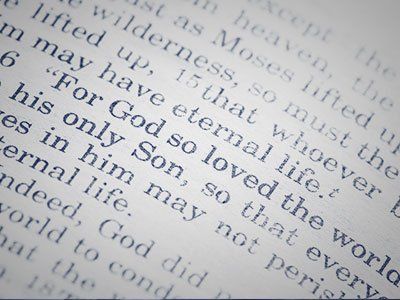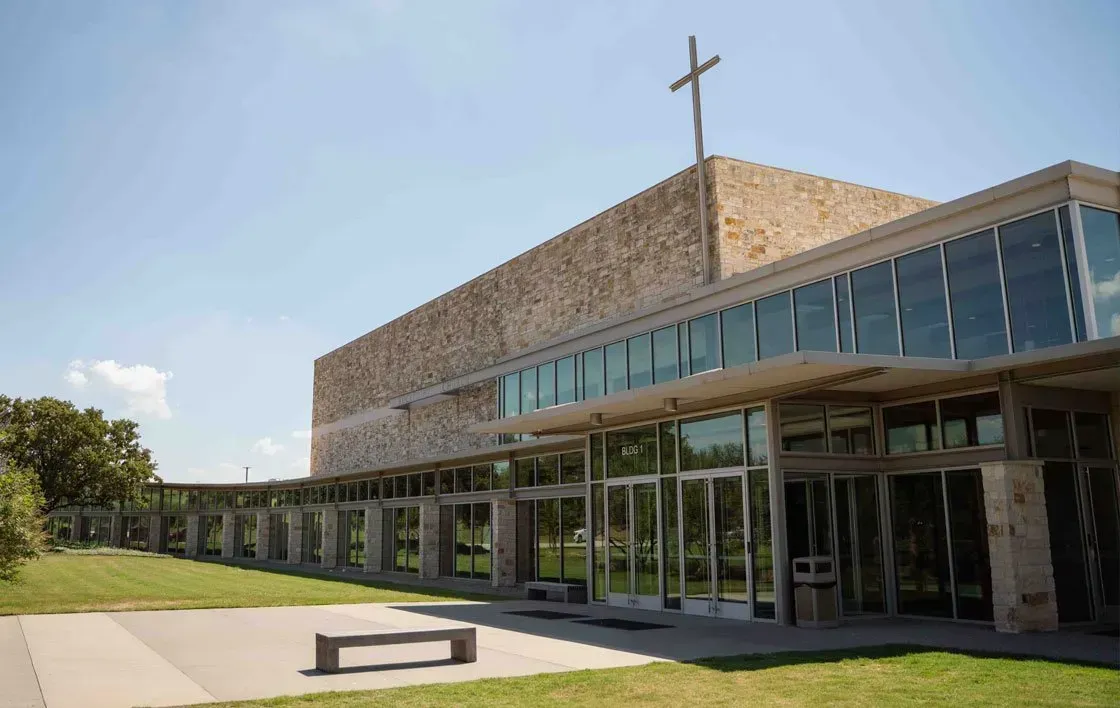Why Would a Good God Allow Bad Things to Happen?

You don’t have to watch the news very long to realize bad things happen. While our area might be a bit of a bubble, one newscast shows us the daily barrage of evil all over the world, sometimes hitting close to home – sometimes too close for comfort.
Where is God in this? He’s good and all-powerful, so why do bad things happen? We’re not the first to ask this question – more than 200 years before Christ’s arrival on the scene in Bethlehem, the ancient Greek philosopher, and avowed atheist Epicurus wondered the same:
“Is God willing to prevent evil, but not able? Then he is not omnipotent. Is he able, but not willing? Then he is malevolent. Is he both able and willing? Then whence cometh evil? Is he neither able nor willing? Then why call him God?”
Bad things, evil things, have occurred since time began. Job, Habakkuk, and David’s account in the Psalms also tells us that.
For just as long, man has tried to find a way to explain these things, and God’s role in them. Transcendentalists teach that evil is an illusion or karma. Naturalists call is bad luck, assigning it no meaning or purpose. Some theists view it as something ordained by God. But as Christians, we can’t align our belief and our knowledge of our good, holy and righteous God with any of these views.
God didn’t create evil. And He didn’t ordain it. But He did create man. And He gave us free will. A byproduct of man’s free will is evil – by allowing man to have free will, God allowed for the possibility of evil. Evil is simply the absence of goodness. When man’s free will runs contrary to the will of our holy God, goodness is absent, so evil is the result. It’s the result of God’s love so true He allows us the freedom to make our own decisions.
God’s will isn’t something that can be defined in one phrase. There are four distinct ways His will can be categorized.
Sometimes God actively desires and actively causes things to happen. A good example of this is creation.
Sometimes He actively desires something but doesn’t actively cause it. The best example of this is our obedience. God wants that, but he doesn’t force it. It’s a matter of our free will, which He gave us at creation.
There are also things God does not desire and actively prevents – like Daniel’s certain death in the Lions’ den. It didn’t happen because God intervened and prevented it.
And finally, there are things that God does not desire, but does not actively prevent. Our sin falls into this category. For our free will to have meaning, God allows us to make choices that He would prefer we didn’t make.
Satan’s influence, our own free will, and the fallen world that results from our free will combine to allow for a series of bad things, sometimes even evil things, that God never desired. John 10:10 tells us that the thief, that’s Satan, comes only to steal, kill, and destroy. Adam and Eve’s decision to eat from the tree – an act of their free will, with a little encouragement from the enemy – ensured that this life would end in death.
Fortunately, we have a God who loves us. He sent His son to suffer for us, and His Holy Spirit to comfort us. He is with us in the suffering we endure when bad things happen, and He can redeem that suffering when we allow Him to work in us and through us.
We know that bad things weren’t God’s original intent. Genesis 1:31 documents the goodness of God’s creation. God desired perfection.
We also know evil isn’t God’s present pursuit. Not only is it not fitting with His unchanging Holy nature, His word tells us that Jesus, who knew no sin, took on our sin so that we could take on His righteousness (2 Corinthians 5:21). And Genesis 50:20 tells us that He uses for good even what man means for harm. And in chapter 21 of Revelation, we are assured that evil, suffering, all manner of bad things will not be part of God’s final product – He will again establish perfection and eradicate evil.
Today, though, bad things and evil are part of our reality. Epicurus didn’t get it right. He should have said, If God were all good He would destroy evil. If God were all-powerful He could destroy evil. Evil has not yet been destroyed. So the conclusion Epicurus should have reached is this: Evil one day will be destroyed by our all-good, all-powerful God.
Lost or saved, we’re likely to find ourselves longing for that time when evil is destroyed and perfection is re-established. That’s a longing for Heaven. C.S. Lewis said, “If I find in myself desires which nothing in this world can satisfy, the only logical explanation is that I was made for another world.” And indeed, we were. Even those who don’t claim a relationship with Christ, even those who don’t profess a belief in God, were created by our holy and perfect God, for fellowship with Him. Even as our free will leads to acts of disobedience, our innermost being recognizes we were created for a world without evil.
There are a few truths we can hold on to when we experience bad things, or when we want to offer hope or an explanation… And they’re alphabetical, A through I, to help us remember them!
- The evil a bsolutely breaks God’s heart, and He abhors all evil
- It’s a b yproduct ofour free will and the fall
- There is c oming a day when all will be made right
- God will d o something with it, use it, redeem it
- E very other view seems lacking
- We can have f aith that God suffered for me and is with me
- G od sent his son to pay the price
- H ope is found in Him
- I would love to hear your thoughts
These thoughts won’t put an end to evil or the suffering it brings, but they can help us maintain a perspective that allows us to rest in God as He redeems our suffering.
ABOUT ROCKPOINTE CHURCH
RockPointe strives to provide a welcoming, family-friendly environment where people of all walks of life encounter the transforming power of a relationship with Jesus.
You will find RockPointe to be a place of imperfect, but genuine and authentic people seeking to glorify Jesus with their lives. Our hope is to point to the empowering grace of Jesus that transforms people to become impactful disciples for the kingdom of God.
The worship music is modern in style and highly gospel-centered in content. People are encouraged to passionately worship Jesus in “spirit and truth.” At RockPointe we value singing songs that are Christ-exalting and theologically rich.
We hold the Scriptures in high regard as the final authority in a person’s life. Messages at RockPointe are Christ-centered and will provide great insight as to what the Bible teaches about living your life for the glory of God. There is also a Family Room for parents to observe the services even while attending to their family needs.
Learn more about who we are here >>





